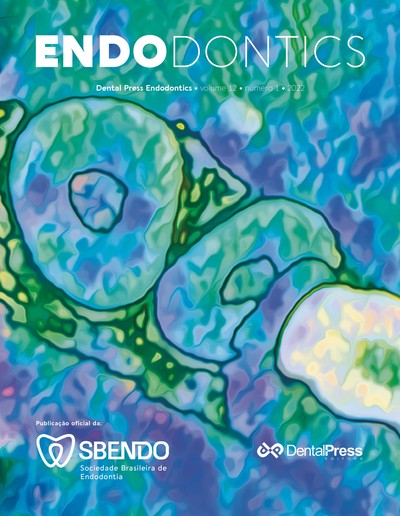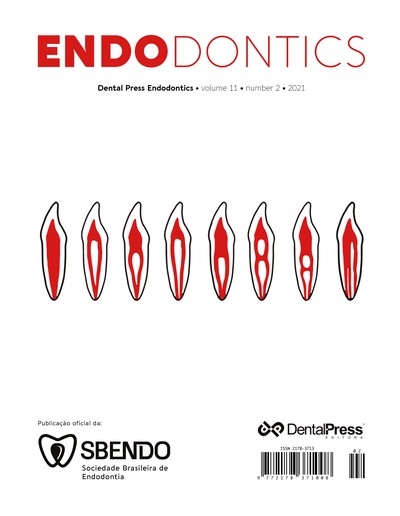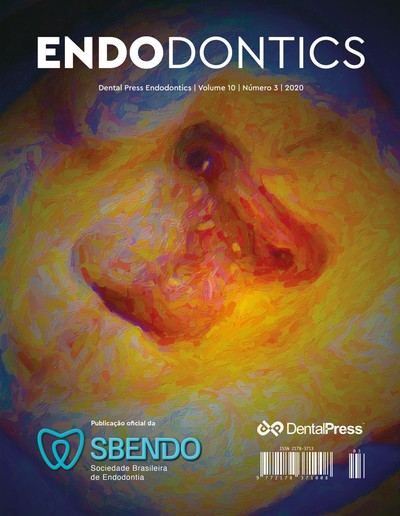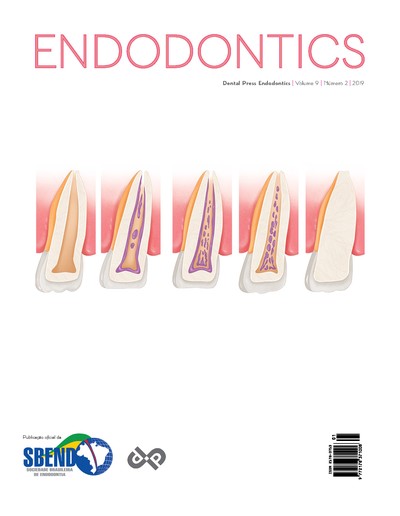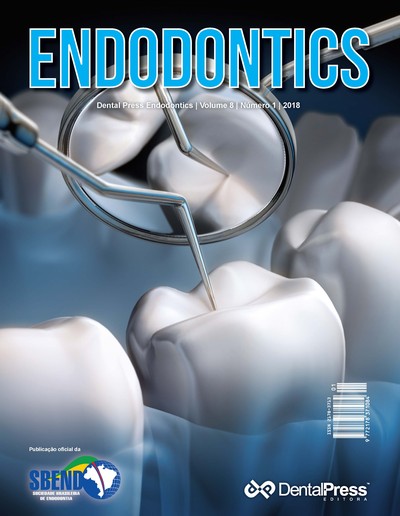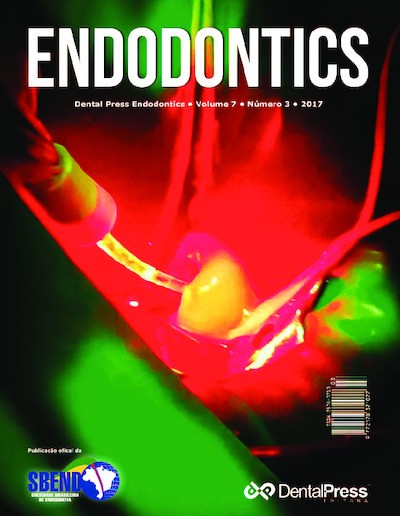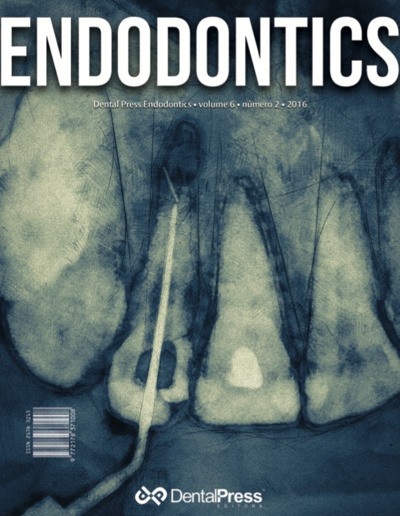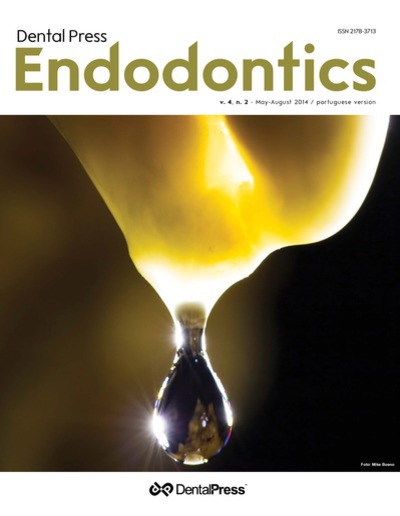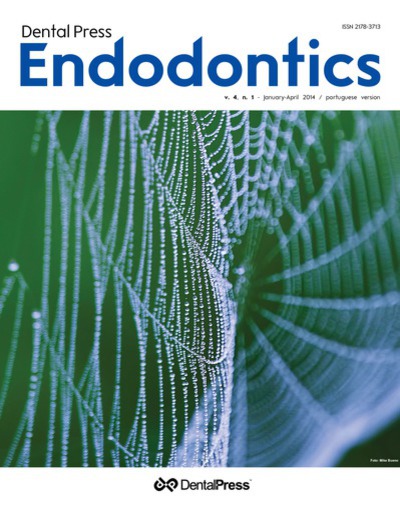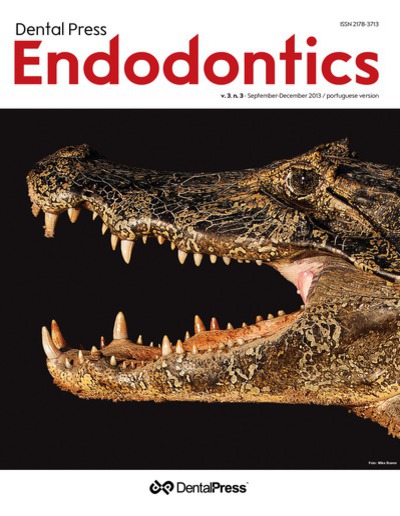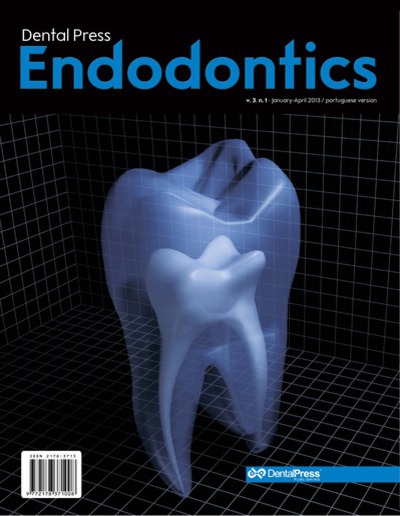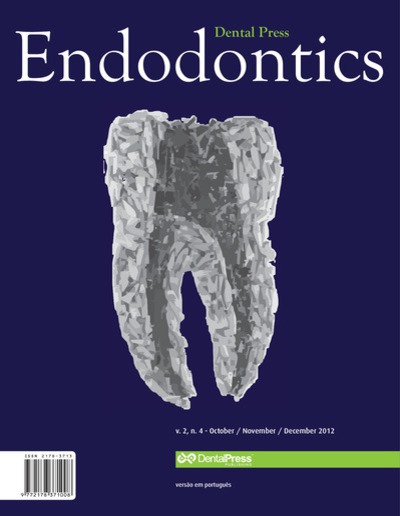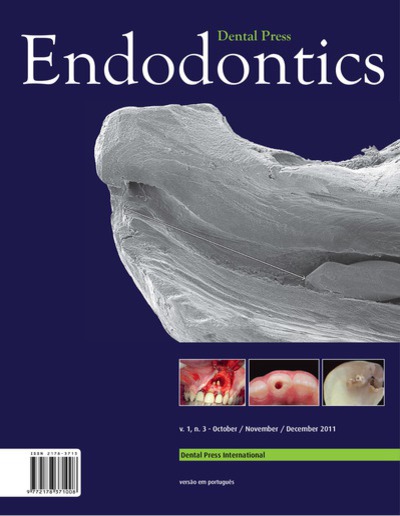
Evaluation of the cleaning ability of two rotatory nickel-titanium systems: Protaper universal and heat-treated ProDesign s
Ana Grasiela da Silva LIMOEIRO, Antônio Henrique BRAITT, Evaldo Almeida RODRIGUES, Gladyvan Rabelo BRAITT, Carlos Eduardo da Silveira BUENO
Introduction: The purpose of endodontic instrumentation is to promote cleaning and shaping of the root canal, preparing it for final filling. Objective: The objective of this study was to evaluate, in vitro, the cleaning quality of simulated canal blocks instrumented by two nickel-titanium rotary systems. Methods: Twenty acrylic blocks (simulated canals) were used and separated into two groups of ten each. India ink was injected into the simulated canals which were wrapped up with foil to avoid influencing during instrumentation. The blocks in Group 1 were instrumented by means of the original sequence of ProTaper Universal system up to file F3. 5 ml of saline solution were used for irrigation at each change of instrument. The blocks of Group 2 were instrumented by heat-treated ProDesign S system up to file #30.05; 5ml of saline solution were also used for irrigation. After instrumentation, the blocks were photographed and analyzed in terms of cleanliness by three Masters in Endodontics. Conclusion: Within the experimental conditions of this research, it was reasonable to conclude that no statistical differences were found between the cleaning ability of both systems studied.
Keywords: Dental instruments. Root canal preparation. Endodontics.
How to cite: Limoeiro AGS, Braitt AH, Rodrigues EA, Braitt GR, Bueno CES. Evaluation of the cleaning ability of two rotatory nickel-titanium systems: ProTaper Universal and heat-treated ProDesign S. Dental Press Endod. 2014 May- Aug;4(2):34-9. doi: http://dx.doi.org/10.14436/2178-3713.4.2.034-039.oar
Wednesday, February 05, 2025 05:43
